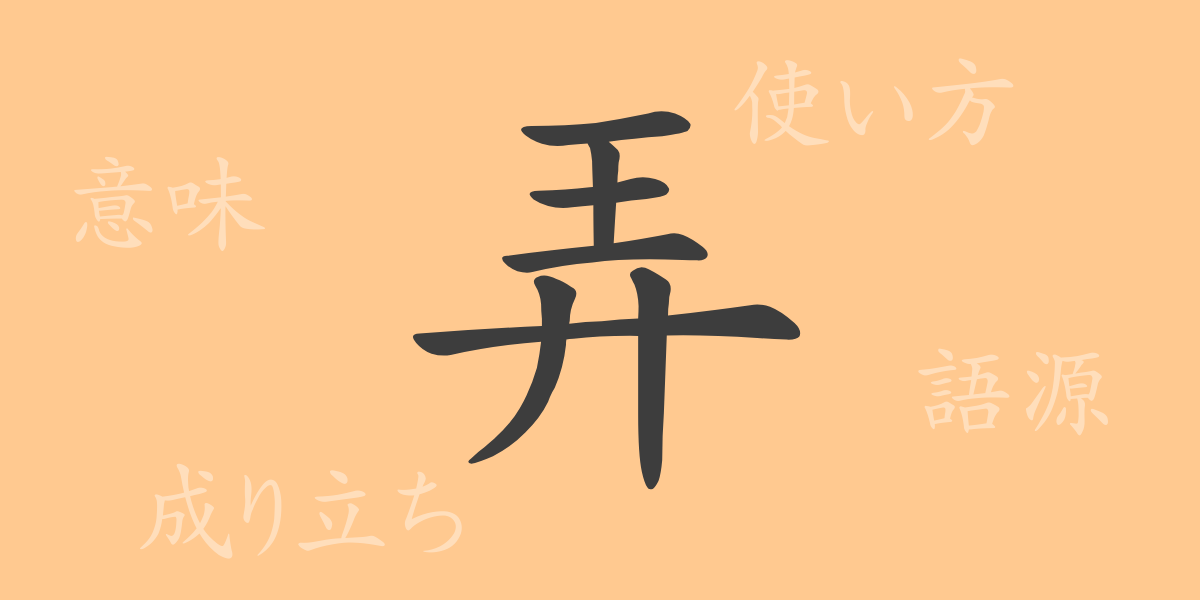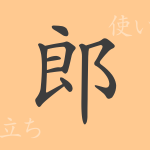The culture of Japanese characters is deep, and the complex world of kanji speaks volumes about its richness. One of the commonly used kanji, ‘弄 (ろう/いじる),’ may not be frequently seen in daily life, but its usage plays a crucial role in literature and expression. In this article, we delve into the charm of ‘弄 (ろう/いじる),’ exploring its origins, meanings, usage, and even idioms and proverbs that incorporate this character.
The Origin of ‘弄 (ろう/いじる)’
The kanji ‘弄 (ろう/いじる)’ is a character that originated in ancient China. Its shape originally depicted a hand grasping an object. Over time, its form and meaning evolved to signify ‘handling something lightly with the hand.’ This evolution is closely related to changes in people’s lives and cultures, reflecting the historical background of the word.
Meaning and Usage of ‘弄 (ろう/いじる)’
‘弄 (ろう/いじる)’ means ‘to fiddle with’ or ‘to play with.’ Additionally, it conveys nuances of ‘skillfully handling’ or ‘manipulating.’ Beyond its physical meaning, it can be used metaphorically to describe skillfully manipulating emotions or situations. In Japanese, expressions using this kanji convey subtle emotions and situations.
Reading, Stroke Count, and Radical of ‘弄 (ろう/いじる)’
Understanding the kanji ‘弄 (ろう/いじる)’ requires knowledge of its readings and structure.
- Readings: The on’yomi (音読み) is ‘ろう (rou),’ and the kun’yomi (訓読み) is ‘いじる (ijiru)’ or ‘もてあそぶ (moteasobu).’
- Stroke Count: ‘弄 (ろう/いじる)’ consists of a total of 7 strokes.
- Radical: The radical of this kanji is ‘弓 (ゆみへん/yumihen).’
Idioms, Proverbs, and Expressions Using ‘弄 (ろう/いじる)’ and Their Meanings
Idioms, proverbs, and expressions that include ‘弄 (ろう/いじる)’ are used to describe specific situations or emotions in Japanese. For example, ‘弄ぶ (もてあそぶ/moteasobu)’ means to handle something lightly or to toy with someone’s emotions. Other expressions include ‘指を弄ぶ (ゆびをもてあそぶ/yubi o moteasobu),’ describing a state of idleness, and ‘言葉を弄する (ことばをろうする/kotoba o rousuru),’ meaning to skillfully manipulate words. These expressions showcase the subtlety and richness of the Japanese language.
Summary of ‘弄 (ろう/いじる)’
The kanji ‘弄 (ろう/いじる)’ reflects how language evolves with culture and time through its form and meaning changes. Covering simple actions like fiddling with objects to complex concepts like skillfully manipulating emotions or words, this kanji demonstrates the expressive power of Japanese. Understanding the background and meanings of ‘弄 (ろう/いじる)’ enables richer communication when using it in writing or conversation.

























